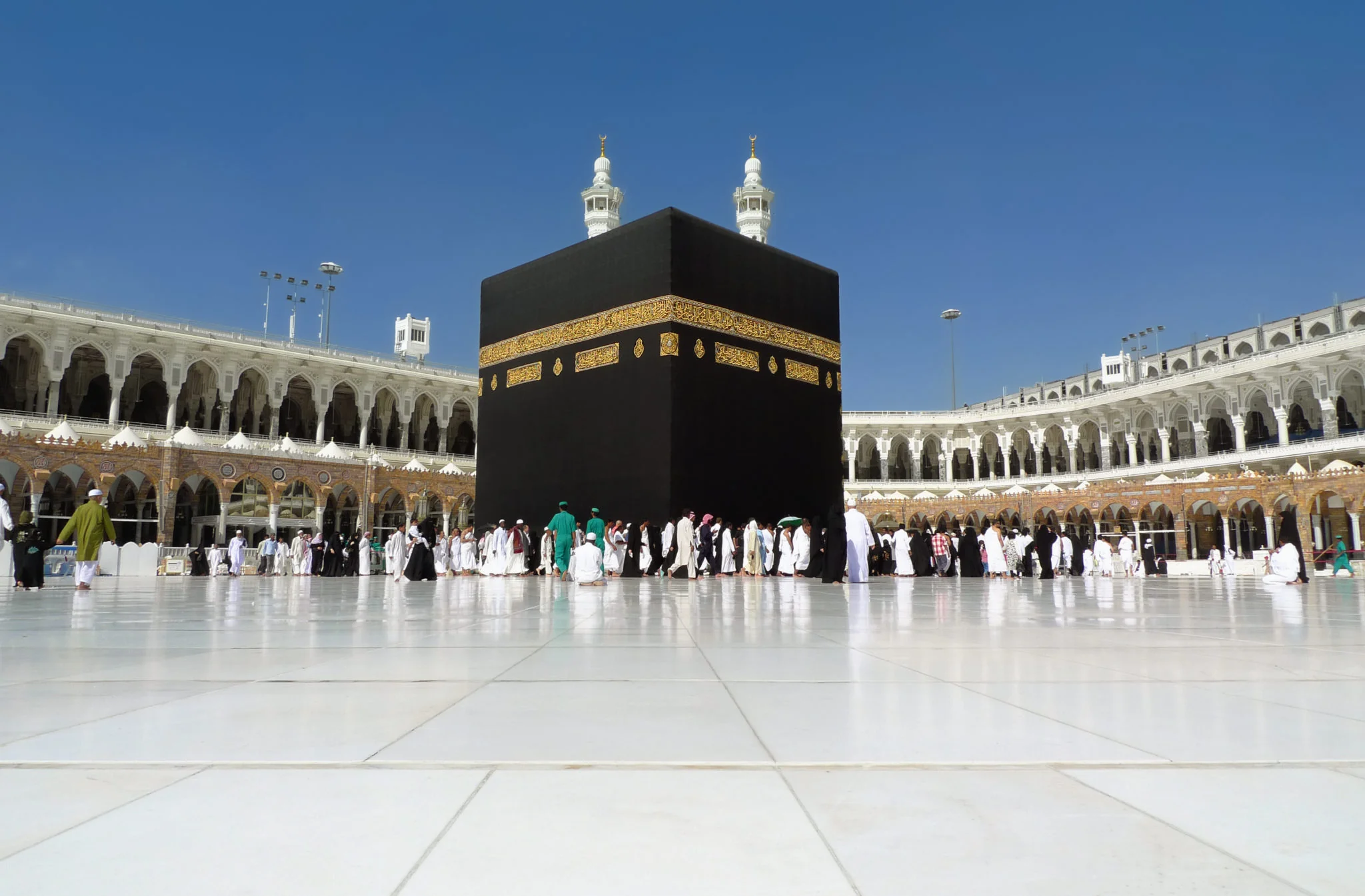
The Kaaba, situated at the heart of the Masjid al-Haram mosque in Mecca, Saudi Arabia, is a cubic-shaped edifice
with profound significance in Islam. As the most sacred site in the Islamic faith, the Kaaba serves as a focal
point for millions of Muslims around the world who orient themselves toward it during their daily prayers.
Constructed from gray granite, the simple design of the Kaaba includes one door and no windows, emphasizing its
spiritual importance over ornate architecture.
At one corner of the Kaaba lies the Black Stone (Al-Hajar Al-Aswad), a revered relic believed to have historical
ties to Prophet Ibrahim (Abraham). Pilgrims embarking on the Hajj or Umrah journeys often seek to touch or kiss
the Black Stone as part of their religious rituals. The exterior of the Kaaba is covered by a yearly-renewed
black silk and gold curtain called the kiswah.
With its historical roots predating Islam, the Kaaba has cultural and religious significance across various
civilizations. However, within the context of Islam, it symbolizes unity, spirituality, and the core tenets of
the faith. The annual Hajj pilgrimage, one of the Five Pillars of Islam, culminates with pilgrims
circumambulating the Kaaba, underscoring its central role in the Islamic practice. The Kaaba stands not only as
a physical structure but as a powerful symbol of the unity of the Muslim ummah (community) and the focal point
of devotion for Muslims worldwide.
The Kaaba, also spelled as "Ka'bah" or "Kaaba," a cubic-shaped structure located at the center of the Masjid
al-Haram mosque in Mecca, Saudi Arabia. It is the most sacred site in Islam and holds deep religious
significance for Muslims worldwide. Here are some key points about the Kaaba:
Religious Significance:
The Kaaba is considered the House of Allah (God) in Islam and is a focal point for Islamic worship.
Muslims around the world face in the direction of the Kaaba during their daily prayers, a practice known as
qibla.
Construction:
The Kaaba is a simple cubic building made of gray granite. It stands upon a marble base.
It has one door and no windows. The interior is empty and unadorned.
Black Stone:
One corner of the Kaaba houses the Black Stone (Al-Hajar Al-Aswad), a sacred relic believed to have been given
to Prophet Ibrahim (Abraham) by the archangel Gabriel.
Pilgrims performing the Hajj or Umrah often try to touch or kiss the Black Stone as part of the rituals.
Covering (Kiswah):
The Kaaba is covered with a black silk and gold curtain called the kiswah.
The kiswah is replaced annually during the Hajj pilgrimage.
Hajj Pilgrimage:
The Kaaba is the central destination for the annual Hajj pilgrimage, one of the Five Pillars of Islam.
Pilgrims circumambulate the Kaaba (performing Tawaf) as part of the Hajj rituals.
Historical and Cultural Significance:
The Kaaba predates Islam and has historical and cultural significance for various civilizations.
It has been a focal point for religious practices throughout history.